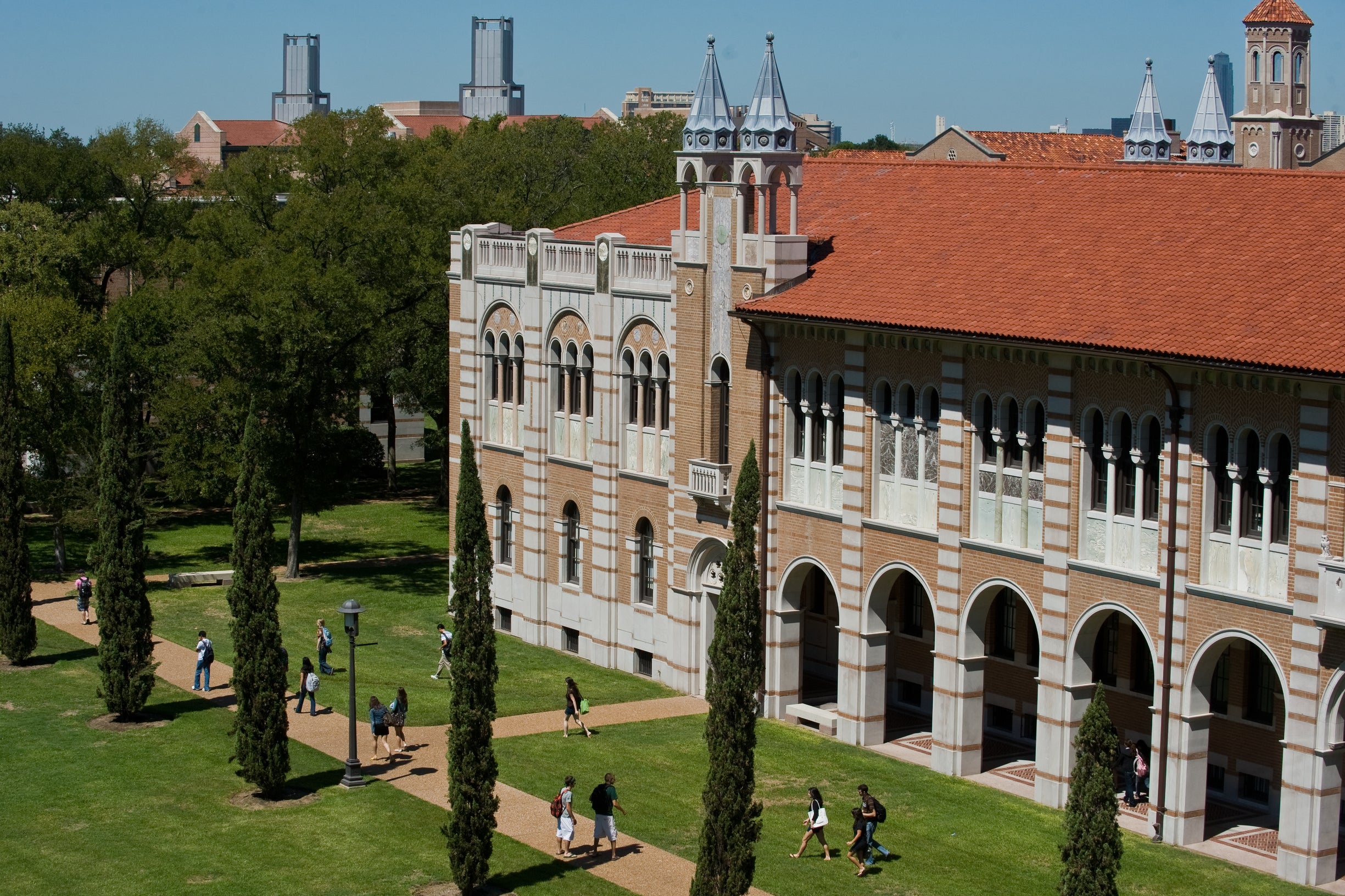For more than four decades, Rice University scientists and engineers have explored and expanded the boundaries of quantum science and created revolutionary computation, sensing and communication technologies based on the principles of quantum mechanics.
In 1979, Rice chemists Rick Smalley and Bob Curl helped co-found an interdisciplinary institute, the university's first, to foster quantum research. Their discovery of buckyballs at Rice six years later played a pivotal role in the development of nanotechnology and earned them and British collaborator Harry Kroto the Nobel Prize for Chemistry in 1996.
Today, Rice's Smalley-Curl Institute still champions quantum and nano research. It was joined in 2020 by The Welch Institute, which was established with the largest single gift in Rice's history to accelerate discovery, design and manufacture of advanced materials.
To build on Rice’s expertise in quantum science and to foster research, training and its application in areas such as computing, sensing and communications, the university has launched the Rice Quantum Initiative. The initiative will further support and broaden multidisciplinary quantum research at Rice, adding 12 new faculty positions in the schools of natural sciences and engineering.
“This is a significant investment in the work of our current faculty and in the overall growth of research in the area of quantum science and engineering,” said Provost Reginald DesRoches. “It will provide tremendous opportunities for Rice students and postdoctoral researchers to make profound contributions to the future.”
Rice has almost 50 faculty dedicated to the study of quantum science and engineering. Their areas of expertise include algorithms, devices, materials, chemistry and simulation. Rice researchers are especially visible and admired in the studies of quantum matter, systems whose properties can only be explained by quantum theory, including ultracold atomic gases and quantum materials. These systems are exceptional platforms with which to perform quantum simulation, which utilizes well-controlled and understood systems to simulate and study crucial aspects of more complex problems in materials or chemical structure, much like wind tunnels are used to study fluid dynamics.
Rice is adding top-notch quantum scientists and engineers with complementary expertise to strengthen the university’s quantum information science and technology research community by expanding efforts in quantum-engineered devices and quantum algorithms. Quantum-engineered devices such as quantum simulators will provide some of the first transformative results of the quantum information age: critical insights into complex quantum systems and processes beyond classical computational reach.
“We have an incredible breadth of expertise in quantum science here at Rice,” said Wiess School of Natural Sciences Dean Tom Killian. “Now is the time to increase our investment in this community to accelerate the pace of discovery.”
Technologies based on the principles of quantum mechanics are expected to revolutionize computation, communication and sensing. Congress passed the National Quantum Initiative Act in December 2018 to accelerate the development of quantum information science and technology (QIST) applications. High-tech companies are competing to develop quantum technologies, and there is a pressing need for graduates who are well trained and educated in QIST. The Rice Quantum Initiative will dramatically expand Rice’s investment in QIST, building on the university’s recognized strengths in quantum research.
“The goal is to enable Rice researchers to stay at the forefront of the quantum revolution while educating the next generation of leaders in quantum technology,” said George R. Brown School of Engineering Dean Luay Nakhleh. “We have brought together efforts that are spread across many departments to coordinate our programs, raise visibility and compete in this interdisciplinary field.”
The Rice Quantum Initiative links scientists and engineers working in atomic physics, condensed matter physics, optics, photonics, materials science, chemistry, mathematics and computer science; tightly connects faculty from eight Rice University departments with collaborators and experts in research, education and outreach both within Texas and across the globe; fosters collaboration between universities, national laboratories and industry partners; and prepares people for quantum-enabled careers via outreach and training.

